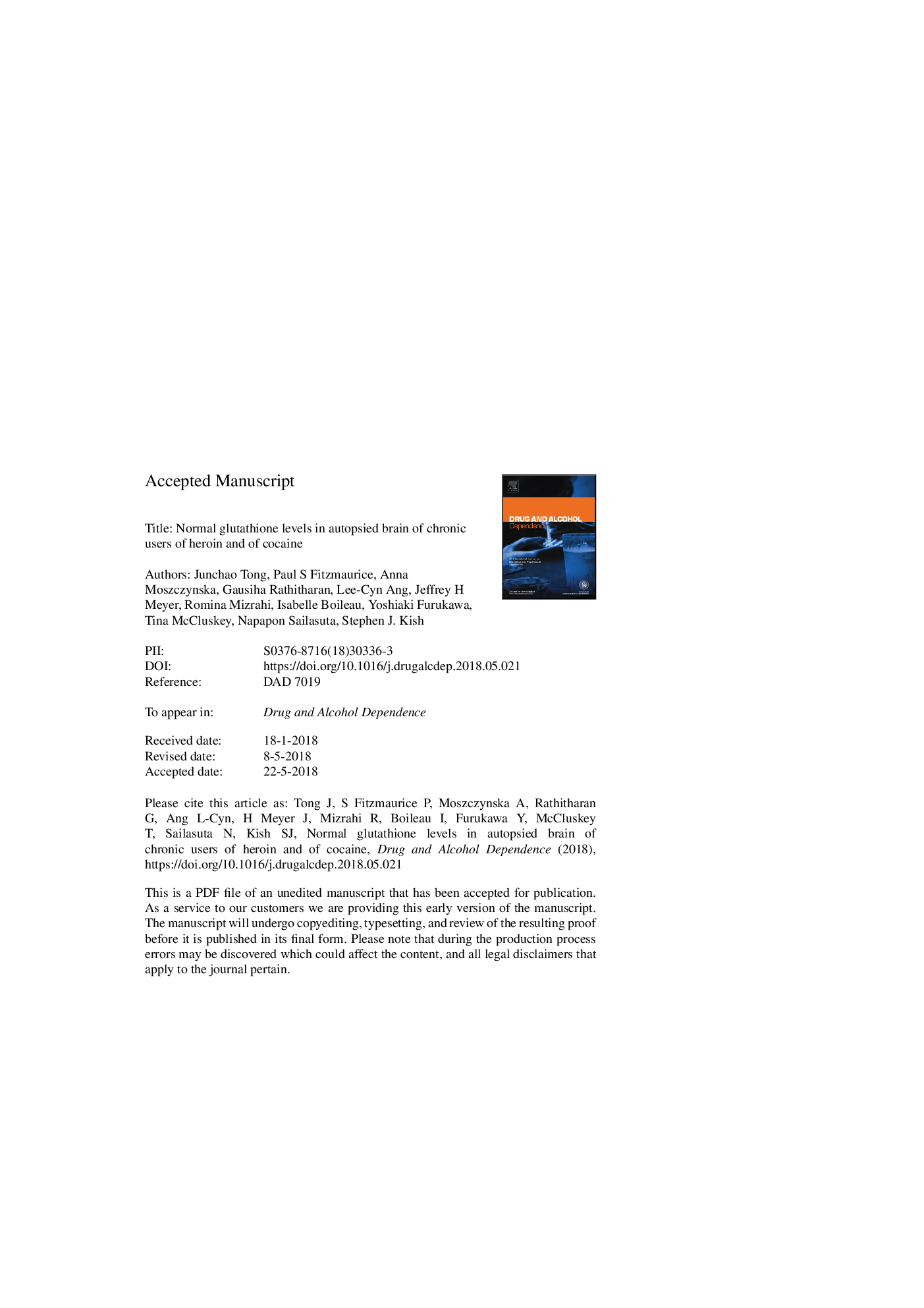| Article ID | Journal | Published Year | Pages | File Type |
|---|---|---|---|---|
| 7502669 | Drug and Alcohol Dependence | 2018 | 44 Pages |
Abstract
Acknowledging the many generic limitations of an autopsied human brain study and the preliminary nature of the findings, our data nevertheless suggest that any oxidative stress caused by heroin or cocaine in chronic users of the drugs might not be sufficient to cause substantial loss of stores of glutathione in the human brain, at least during early withdrawal. These findings, requiring replication, might also have some relevance to future clinical trials employing glutathione supplement therapy as an anti-oxidative strategy in chronic users of the two abused drugs.
Related Topics
Life Sciences
Neuroscience
Behavioral Neuroscience
Authors
Junchao Tong, Paul S. Fitzmaurice, Anna Moszczynska, Gausiha Rathitharan, Lee-Cyn Ang, Jeffrey H. Meyer, Romina Mizrahi, Isabelle Boileau, Yoshiaki Furukawa, Tina McCluskey, Napapon Sailasuta, Stephen J. Kish,
